critical ecologies
Ecocritique between Landscape and Data: The Environmental Audiotour
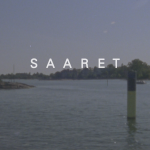
This article discusses the Environmental Audiotour—a work by Parikka, Patelli, and Wong through which art and technology intersect with environmental issues at the Helsinki Biennial 2023. The artist-researchers explore topics like rising sea levels affecting islands, how humans impact the environment, and ways to visualize environmental data. Overall, the authors use creative methods to understand and address environmental problems in today's digital world.
Thank you to the ELO 2023 conference, especially to its organizers, Daniela Maduro, Manuel Portela, Rui Torres, and Alex Saum-Pascual, who first hosted Professor Jussi Parikka as a keynote speaker at their conference in Coimbra, Portugal. This resulting publication is a collaboration with ELO 2023 and will also appear in their forthcoming conference publications.
Who Does Your Game Play?
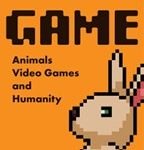
What can video games teach us about our relationship with animals? Hanna Hellesø Lauvli's review of GAME by Tom Tyler urges us to see life from the other side of the food chain.
MATERIALS FOR A LIFE: “whispered conversations: beholding a landscape through journey and reflection” at Stand 4 Gallery
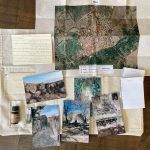
A post-closing catalog essay on a curious and original exhibition, one that rethinks the very idea of a group show, from singular research journeys by Kate Collyer (not her first) to Alaska, Megan Porpeglia to Sardinia (on a residency for the first time visiting her family roots), and Lorrie Fredette to Cape Cod. Like McElroy's own literary works, these twenty-two artworks are presented through several shifting lenses.
Review of The Lab Book: Situated Practices in Media Studies
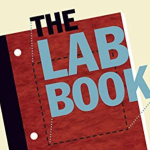
What is a humanities lab? How do we distinguish between a lab in the humanities and a lab in STEM--especially in various lab processes and factors that include "technicians, technologies, traditions, techniques, and trajectories"? In his review of Darren Wershler, Lori Emerson, and Jussi Parikka's book The Lab Book, Jason Lajoie outlines the ways in which labs and lab culture have expanded to make room for making.
Lines of Sight: Thirteen Ways of Looking at a System (Organism, Poem, or Otherwise)
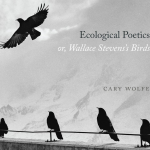
What Mario Aquilina and Ivan Callus accomplished in their "13 Ways of Looking at Electronic Literature", Lisa Swanstrom does for Ecocriticism. Taking as her starting point, Cary Wolfe's book on Wallace Stevens, Swanstrom explores each and every one of Stevens's "13 Ways of Looking at a Blackbird." What emerges, alongside Wolfe's ecocriticism is a resurgence, in literary studies, of the art of close reading.